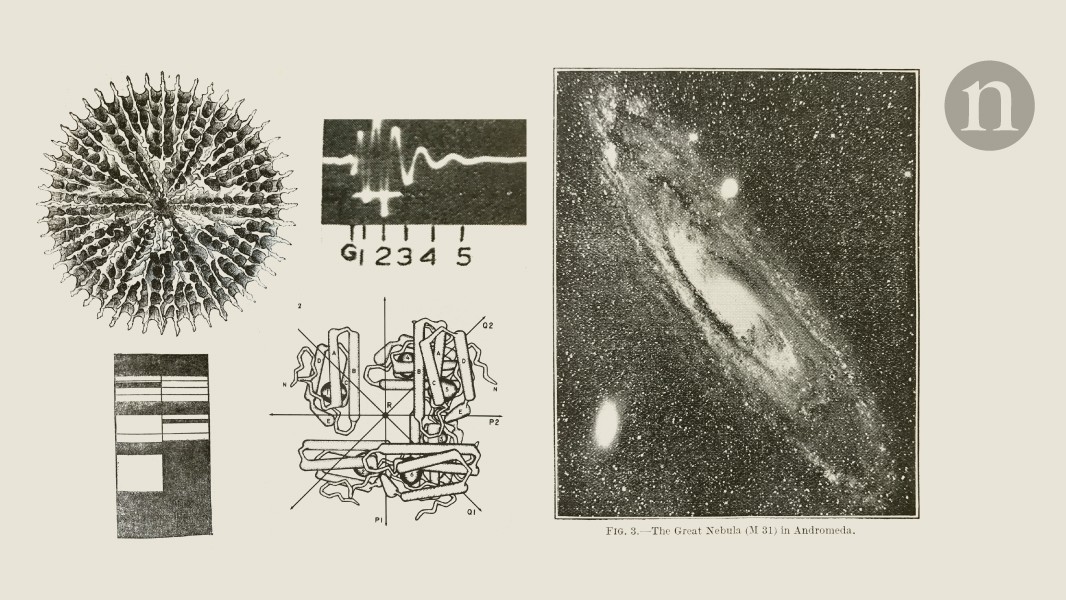Jason Whittle should be known as a man of deep faith, a father of six and husband of 25 years.
He also should be known for his community work at Ground Zero after the Sept. 11 attacks, especially for the profound compassion that helped his best friend’s devastated family.
After that, he should be known as a vicious and versatile NFL offensive lineman for 11 years, playing in a Super Bowl.
Despite what the internet insists, Whittle does not want to be known as Patrick Swayze’s son.
“I would love to set the record straight,” Whittle said.
Whittle’s Wikipedia page has more edits than an NFL grunt’s thumbnail bio should. He played 142 games, starting 45 for the New York Giants, Tampa Bay Buccaneers, Minnesota Vikings and Buffalo Bills, but most people connect him to Swayze, the blockbuster leading man from major films such as “Dirty Dancing,” “Ghost” and “Road House.”
For the past few years, rumors have persisted that Whittle is Swayze’s secret son. The information gets added to the Wikipedia page over and over, especially over the past couple years, only to be swiftly removed.
“It’s absolutely not true!” Whittle said, almost screaming in laughter. “I’ve never claimed it’s true!”
That’s why Whittle was eager to speak with The Athletic. Although his family has been amused by the online phenomenon, he would like for there to be a record about its inaccuracy.
It’s also a good excuse to remind people what Whittle truly is all about because his story is remarkable enough without embellishment.
Turns out, there is a man named Jason Whittle who has claimed to be Swayze’s son. The tabloids and Hollywood trade publications picked up on the story, and one of them very early on connected that Jason Whittle to the football player.
“It really started seven or eight years ago, or at least that’s when I was made aware of it,” our Whittle said from his home near Lake Ozark, Mo. “A buddy sent me an article, and in that article, it wasn’t me. It was another guy, a guy who’s a year older than me. He’s from the surrounding area, not super far from me in Missouri, but not exactly. Never met the guy.
“The whole article was about him, but in the very last line it said he played in the NFL.”
Around the world the story went. Swayze is so famous and the appetite for celebrity gossip so voracious that websites ran with the story as though it were fact.
Search for “Jason Whittle” online now and as soon as you finish typing the “L,” the algorithm will add Swayze’s name too. Click the button and you will see Whittle smiling face, usually from his official Bills headshot.

Jason Whittle’s 2008 Buffalo Bills headshot accompanies false stories about him online. (Getty Images)
“I probably get asked a couple times a week,” Whittle groaned. A European television station once called, wanting to visit Missouri to interview him.
Given what “secret love child” infers, Whittle thinks more about his parents than himself when it comes to the tall tale. Kerry and Laura Whittle, married for 52 years, are devout Christians, tickling the family further.
“It’s a big, long-running joke in our family,” Whittle said. “Literally, it’s once or twice a week I either get an e-mail or somebody asks me.
“One of the women my mother does Bible study with and has known for a long time came up to her one day and goes, ‘So I hate to ask, but the girls and I have been talking, and you don’t have to answer if it’s too painful, but is this true?’ My dad thinks it’s hysterical.”
Jason’s wife, Natalie Whittle, gets the most worked up. Jason said she worries that people read these reports and assume they have “Swayze money” stashed around their house.
Whittle’s life doesn’t need to be sensationalized to find value. The family is active at Potter’s House of Camdenton, a nondenominational Christian church, and has done mission work in the Philippines. The Whittles have participated in ministry initiatives with the Institute at Kanakuk in Branson, Mo. His four daughters have either graduated from or still attend religious-based universities. His two sons are grade-schoolers.
Throughout his life and career, he has been known as a man of extraordinary virtue, a great teammate, a loyal friend.
And another thing:
“He was a hard-nosed, tough son of a bitch,” said Jim McNally, his offensive line coach with the Giants and Bills. “He was as mean, angry and finished blocks as much as anybody. He never knew pain. He wasn’t one of these 340-pound guys, but he was athletic and versatile. He could’ve been a fullback like the kid with Baltimore, Patrick Ricard. He could play blocking tight end. He was our backup center.”
Whittle, undrafted out of Southwestern Missouri State in 1998, was an overachiever, an undersized survivor. Injuries forced him to become the Giants’ long snapper. So, by extension, he shares the record for most punts in a Super Bowl. He started 15 games, including one in the postseason, playing the last month with four broken ribs.
In 2003, Jon Gruden of the defending Super Bowl champion Buccaneers made Whittle their first free-agent signing, although a broken right fibula spoiled their plans. A year later, the Giants brought back Whittle in a trade.
McNally urged the Bills to sign Whittle in 2007 as part of an expensive O-line overhaul that included left guard Derrick Dockery and right tackle Langston Walker to play alongside incumbent left tackle Jason Peters. By the next season, Whittle also was playing some fullback.
“He was one of my favorite players ever,” McNally said. “He was high-character, a hard worker, probably the toughest guy on our football team. I can’t say enough good things about him.”
McNally was speaking merely about Whittle the football player.
While with the Giants, Whittle proved he was more distinguished than all that.
As humankind sought existential meaning after terrorists hijacked commercial airplanes and flew them into World Trade Center, the Pentagon and a Pennsylvania field, killing nearly 3,000 people, Whittle was among America’s most prominent sports figures to provide perspective.
“You hope that all the lessons and all the things that were taught by that moment aren’t forgotten,” Whittle said last week. “Time tends to make some of those things forgotten. But it changed everything from then on.”
Whittle gave dozens of interviews in the aftermath and visited Ground Zero multiple times because he knew people were afraid, angry and trying to make sense of it all. Directly affected more than most, he knew he had a helpful message to share from a powerful platform.
Debris from the second Twin Tower struck Randy Drake on the street. Randy, a network integration manager for Siemens International and U.S. Army veteran, was in Manhattan for a construction project. He was the older brother of Whittle’s best friend, Greg Drake.
Drake’s family asked Whittle to find a way to Bellevue Hospital so Randy would not suffer alone. Manhattan was locked down. Whittle tried the George Washington Bridge, the Lincoln Tunnel, the Holland Tunnel, the ferries. The trip from New Jersey normally would take 45 minutes, but Whittle navigated the streets for over four hours. Out of desperation, he returned to the GW Bridge and begged a police officer to let him pass, to let him comfort his dying brother. It wasn’t a fib. The Drakes had 13 children, and Whittle always considered himself the 14th. He called their parents Mama Drake and Big Daddy Don.
Whittle held Randy’s hand. Randy, just 37 years old, wasn’t going to survive; that was evident. So Whittle sat there, tears streaming down his face, and just kept talking to him, sharing all those memories from growing up, telling him how dearly he was loved.
“To know Jason was there just holding Randy’s hand meant the world to us,” Greg Drake told USA Today in 2006.

Jason Whittle (No. 66) and the Giants played in Kansas City on Sept. 23, 2001. (Elsa / Allsport)
Randy, eventually transferred to a Kansas City hospital, died Sept. 22. The Giants played the Chiefs in Arrowhead Stadium the next day, the NFL’s first weekend back after canceling games the week before. Greg Drake attended the game, as did Randy’s teenage son, Joe.
“Just to see Kansas City’s fans, the way that they responded to us being there,” said Whittle, “it’s still hard not to get emotional about that as you really reflect on it.”
Back at Ground Zero, Whittle mustered whatever he could to encourage the community. He was a default celebrity as a member of the Giants’ Super Bowl squad from just eight months earlier. A week after the attacks, Whittle and a group of Giants visited FDNY Engine 40 and Ladder 35, where families of the missing still waited for loved ones to return. He passed Giants teddy bears out to children, unloaded supplies for the first responders, handed out water bottles and coffees, signed hard hats and posed for pictures.
The grief, however, was overwhelming. Adults had begun to realize what anxious kids at the firehouse hadn’t yet, that their mommy or daddy wasn’t coming home.
“It’s one thing to see it on TV and to hear about it, and your heart breaks,” Whittle said, “but then to go down to Ground Zero and see these heroes that have been down there for a couple of days and they haven’t slept and haven’t eaten … It’s hard to explain the level of destruction and despair.
“People understand how tall those buildings are, but they don’t understand that, for blocks, windows 30 stories up were just blown out from the compression. To see the smoke and the rubble and these people who are looking for friends and family, it was a difficult thing to see firsthand.
“When you talk about heroism, many of those guys knew they were going into that building and they probably would not come back. Hoo, that was pretty heavy.”
For weeks, the Giants could see and smell from their training facility at the Meadowlands the smoke still billowing from Manhattan. Whittle appreciated that constant reminder.
Several of his teammates backed out of a second Ground Zero support mission, too traumatized from the last visit. But Whittle returned. If he could provide even a brief distraction from the chaos and misery and divert the spotlight from sports demagoguery to those who truly deserved it, then how could he not?
“Like for most people,” said Whittle, “I think it was just this a time of putting things in perspective, of understanding how fragile life is, how wonderful life is and how you can’t take it for granted, to make sure that you’re living the life you’re glad you did, as opposed to ‘I wish I had.’ It was interesting to see how New York — and really the whole country — came together.”
(Top photo of Jason Whittle: Paul Spinelli / AP Photo)





More News
NFL playoff projections 2024: The Athletic’s model predicts the field
Panthers bench No. 1 pick QB Bryce Young, will start Andy Dalton in Week 3: Source
Marvin Harrison Jr., after underwhelming debut, breaks out for Cardinals in Week 2